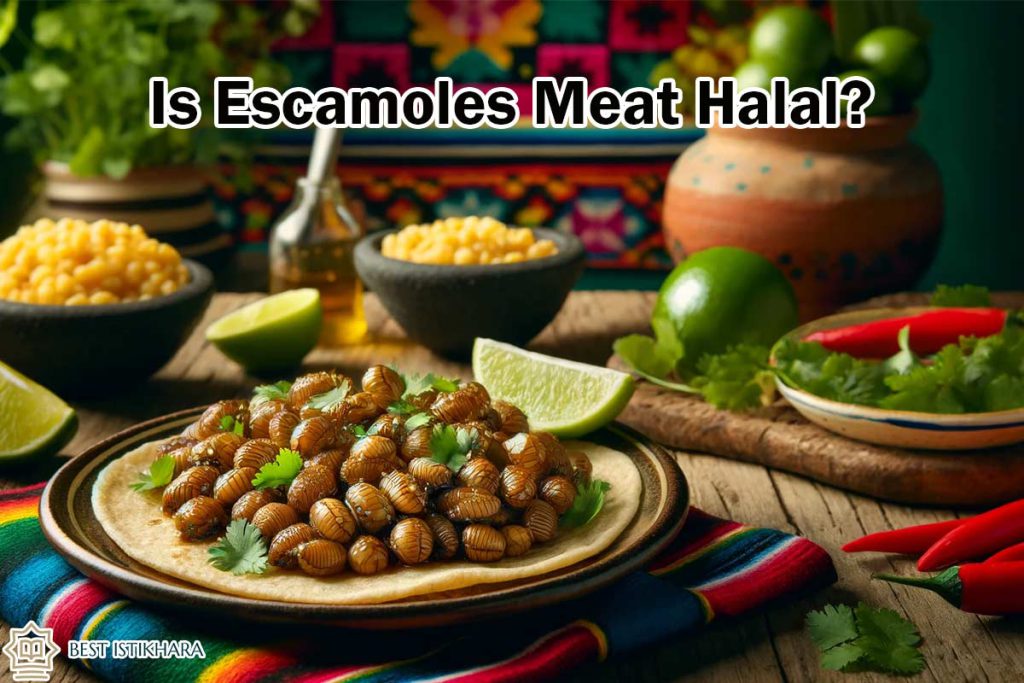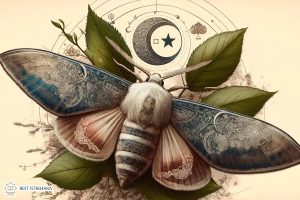Is Escamoles Meat Halal?

Escamoles, often referred to as “Mexican caviar,” are edible ant larvae harvested from the roots of agave or maguey plants. This unique delicacy has been a part of Mexican cuisine for centuries, cherished for its rich, nutty flavor and creamy texture. Traditionally consumed by indigenous peoples, escamoles are now a gourmet ingredient in high-end restaurants across Mexico. Harvesting escamoles is a delicate process, as it involves extracting the larvae without damaging the plant roots. This introduction sets the stage for exploring the cultural, nutritional, and religious aspects of escamoles, particularly their status as halal or haram in Islamic dietary laws. Click to get more information about halal vs haram topics discussed in today’s world.
What Are Escamoles? A Guide to Mexican Delicacy
Escamoles are the edible larvae of ants, specifically from Liometopum apiculatum and Liometopum occidentale. These larvae are harvested from the roots of agave or maguey plants, primarily in Mexico’s central and southern regions. Known as “insect caviar” due to their delicate and rich taste, escamoles have a nutty flavor and a texture akin to cottage cheese or cooked quinoa. Traditionally, they are sautéed with butter, garlic, and spices and often served in tacos, omelets, or as a filling for tortillas. This ancient food source dates back to the Aztec era when it was considered a delicacy. Today, escamoles are a testament to Mexico’s rich culinary heritage and a prized ingredient in modern gastronomy. Their unique flavor profile and cultural significance make them a fascinating subject of both culinary and academic interest.
The Islamic Perspective: Understanding Halal Food
In Islam, halal refers to what is permissible or lawful according to Islamic law. This concept encompasses many practices but is particularly significant in dietary laws. Halal food must comply with specific guidelines outlined in the Quran and Hadith, ensuring that what Muslims consume is clean, pure, and beneficial to their health and spirituality.
What Does Halal Mean in Islam?
Halal, an Arabic term for “permissible,” is the opposite of haram, which means “forbidden.” For food to be considered halal, it must meet several criteria set by Islamic law. These include the way animals are slaughtered, the absence of certain prohibited substances like alcohol and pork, and the ensuring that the food is free from contamination by any haram items. The concept of halal extends beyond food to include all aspects of a Muslim’s life, emphasizing the importance of lawful and ethical practices.
General Guidelines for Determining Halal Food
Several guidelines are followed to determine if food is halal. Firstly, the animal must be healthy at the time of slaughter, and the slaughtering process must invoke the name of Allah. A Muslim should slaughter the animal, and all blood must be drained from the veins. Additionally, any food product must not contain haram ingredients such as pork, alcohol, or any by-products derived from these substances. Food items should be processed and stored using utensils and equipment that have not come into contact with haram substances. These guidelines ensure that the food adheres to Islamic dietary laws, maintaining purity and permissibility for consumption by Muslims.
Are Escamoles Halal? Scholarly Opinions and Fatwas
The question of whether escamoles are halal has sparked considerable debate among Islamic scholars. Escamoles are a type of insect larvae that fall into a category not explicitly detailed in the Quran or Hadith, leading to varying interpretations.
Different Islamic Scholars’ Views on Eating Escamoles
Islamic scholars have diverse opinions on the consumption of insects. Some scholars, primarily from the Maliki school of thought, permit the consumption of most insects, including ant larvae, as they are not explicitly prohibited and have been traditionally consumed in certain cultures. On the other hand, scholars from the Hanafi school generally discourage eating insects, classifying them as impure and unsuitable for consumption unless in cases of necessity. The Shafi’i and Hanbali schools offer more lenient views, allowing insects that are not harmful and are traditionally considered food in some societies.
Key Fatwas and Religious Rulings on Escamoles
Several fatwas address the consumption of insects, specifically focusing on local dietary customs and the health implications of eating such foods. For instance, some fatwas issued by scholars in regions where insects are a traditional part of the diet, like parts of Africa and Asia, permitting their consumption based on cultural practices and nutritional benefits. In contrast, other fatwas emphasize caution, recommending that Muslims avoid consuming insects unless they are explicitly identified as halal. The lack of a consensus means that Muslims seeking to determine the permissibility of escamoles must consider their school of thought and local practices and consult knowledgeable religious authorities.
Comparing Escamoles to Other Insects Consumed Worldwide
Escamoles, or ant larvae, are a broader category of edible insects consumed globally. Insects are a common food source in many cultures, celebrated for their nutritional value and sustainability. For instance, crickets and grasshoppers are popular snacks in Thailand, often deep-fried and seasoned. Similarly, mopane worms, rich in protein and minerals, are a delicacy in Southern Africa, typically boiled or dried for consumption.
In contrast, escamoles are prized for their unique taste and texture, often compared to caviar. While many edible insects are consumed in their adult form, escamoles are larvae, offering a distinct culinary experience. Unlike the crunchy texture of fried insects, escamoles have a creamy consistency that is highlighted in traditional Mexican dishes like tacos and omelets.
The nutritional profiles of these insects vary; for example, crickets are high in protein and fiber, while mopane worms provide essential fatty acids and minerals. Escamoles, conversely, are known for their high protein content and rich, nutty flavor.
Culturally, the consumption of insects like escamoles reflects deep-rooted traditions and local cuisines. While Western societies are beginning to embrace entomophagy for its environmental benefits, many regions have long valued insects as a staple food source. This global perspective on edible insects underscores their versatility and importance in diverse culinary practices.
Conclusion
Determining whether escamoles are halal involves understanding Islamic dietary laws and considering diverse scholarly opinions. While some Islamic scholars permit the consumption of insects, including escamoles, others advise caution. The cultural significance of escamoles in Mexican cuisine and their nutritional benefits add to the complexity of this issue. By comparing escamoles to other edible insects and examining fatwas, Muslims can make informed decisions aligned with their beliefs and practices. Ultimately, consulting local religious authorities and adhering to one’s school of thought are crucial steps in addressing the halal status of escamoles. In this regard, you may also want to read Is Termite Eggs Meat Halal?.




